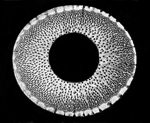|
1960: Uramoto Setchō's Statement about
'Gyō no ongaku': "Ascetic Music"
浦本浙潮 - URAMOTO SETCHŌ - also known as:
浦本政三郎 - URAMOTO MASASABURŌ
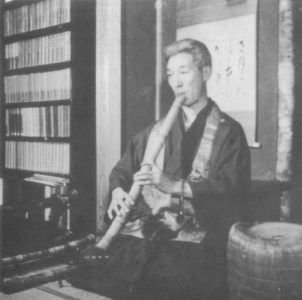
Uramoto Setchō, 1891-1965
Link to source:
Uramoto Setchō commemoration webpage
普化尺八: 行
の
音楽
FUKE SHAKUHACHI: GYŌ no ONGAKU: ASCETIC MUSIC
「普化尺八は行の音楽であった。
尺八は心で吹くな 手で吹くな
寒夜に霜の降るごとく吹け -
総てが自然であり、殊更なる意識なく、
まして況んや技巧をや。
混沌として未分、只精進に因 って
のみ向上する。
若し人間も措いて尺八だけがうまいといふ人があるならば、それは人間と尺八との分離である、
混沌未分ではなくして病的分離の症状に過ぐ ぎぬ。」
"Fuke Shakuhachi was (is) the music of asceticism [gyō no ongaku].
Playing shakuhachi, you blow with your mind, blow with your fingers, like when frost comes down in the shivering cold night.
As a whole, it is "Self" / "Nature" [shizen] without any deliberate consciousness.
Not to mention, let alone any technique, nor finesse [gikō].
Being unresolved in confusion, simply practicing asceticism will nothing but bring about elevation [alt.: improvement, advancement, progress].
Supposingly, when there are people who say that there are also human beings to whom the shakuhachi is only "delicious" [umai]
... that is to detach human beings from the shakuhachi.
Doing away with unresolved confusion, that brings an end to the symptoms of abnormal detachment."
Quotation from Uramoto Setchō's essay 'Zen mondō to satori.'
Essay originally published by Shunjūsha, 1960, 12 pages.
Source of quotation and info: Kikkawa Eishi, 1975, pp. 55-56.
Uramoto Setchō's essay, 12 pages, originally published by Shunjūsha, 1960.
Quotation translated by Torsten Olafsson, 2018.
Renowned Japanese musicologist Kikkawa Eishi introduced Uramoto Setchō's statement to traditional Japanese music readers as early as in 1975:
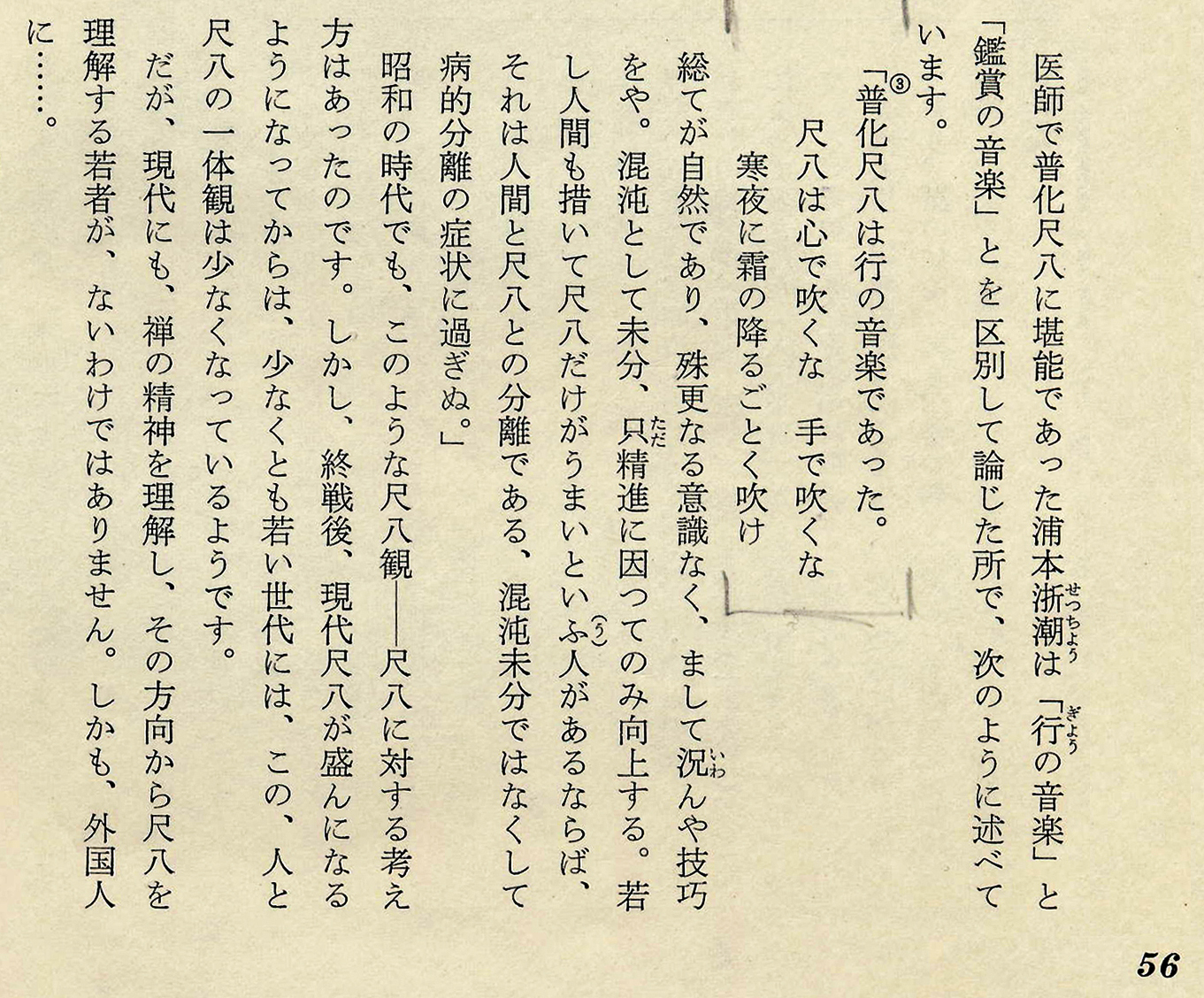
Kikkawa Eishi quoting Uramoto Setchō on page 56.
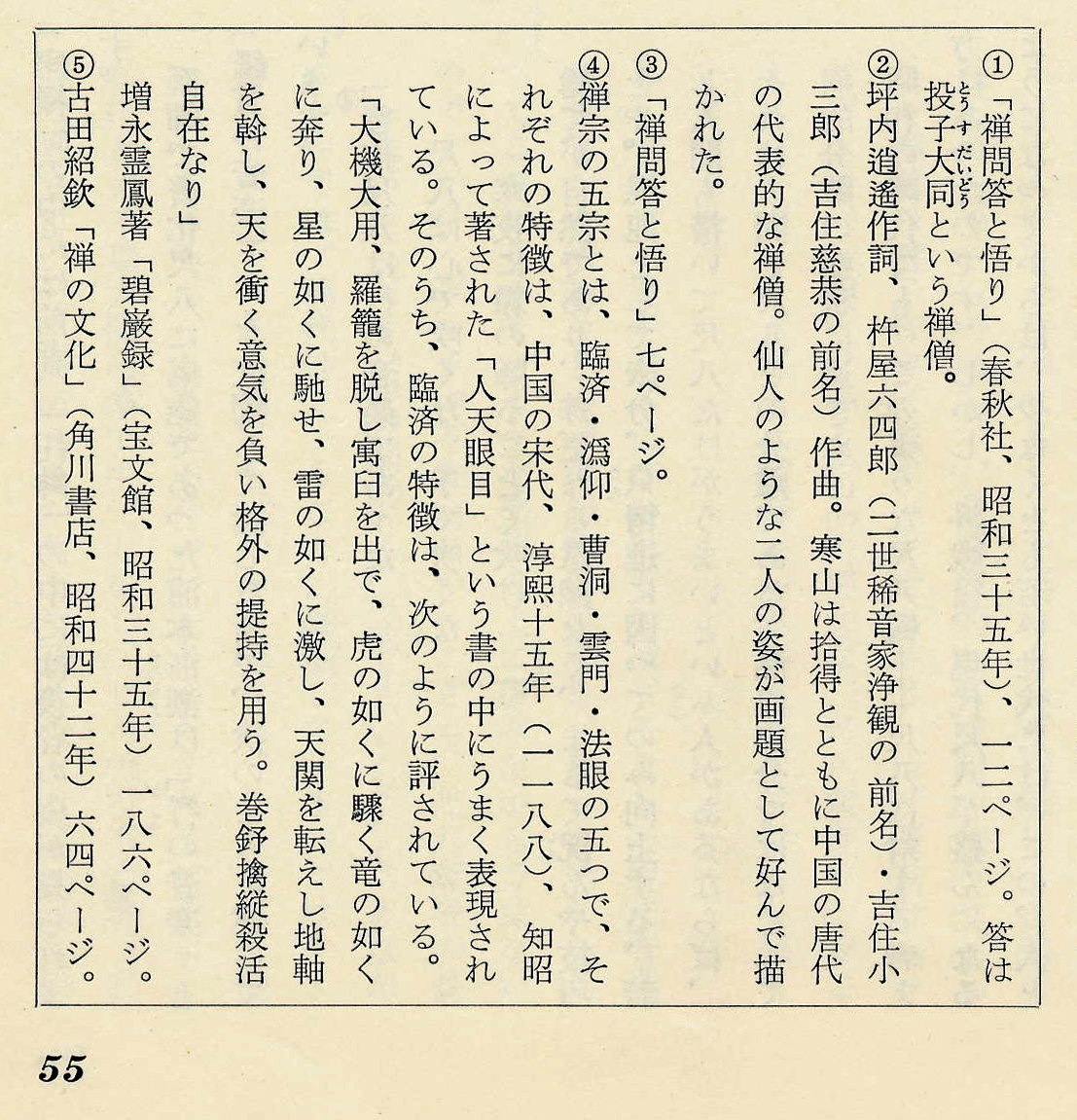
Kikkawa Eishi's explanatory notes and references on page 55.
Bibliographical source:
Kikkawa Eishi: 'Hyōtan namazu to shakuhachi. Shakuhachi ni miru bigaku.'
In: Kikan hōgaku 5, pp. 52-59, Tokyo, 1975.
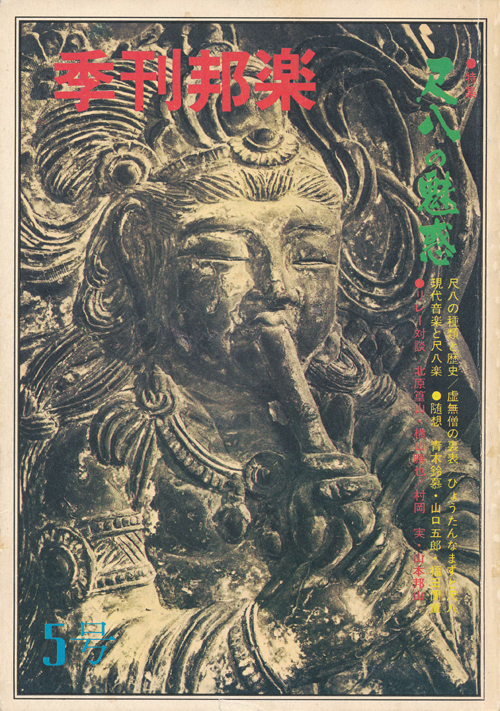
Kikan Hōgaku 5, 1975, front cover
|
|
